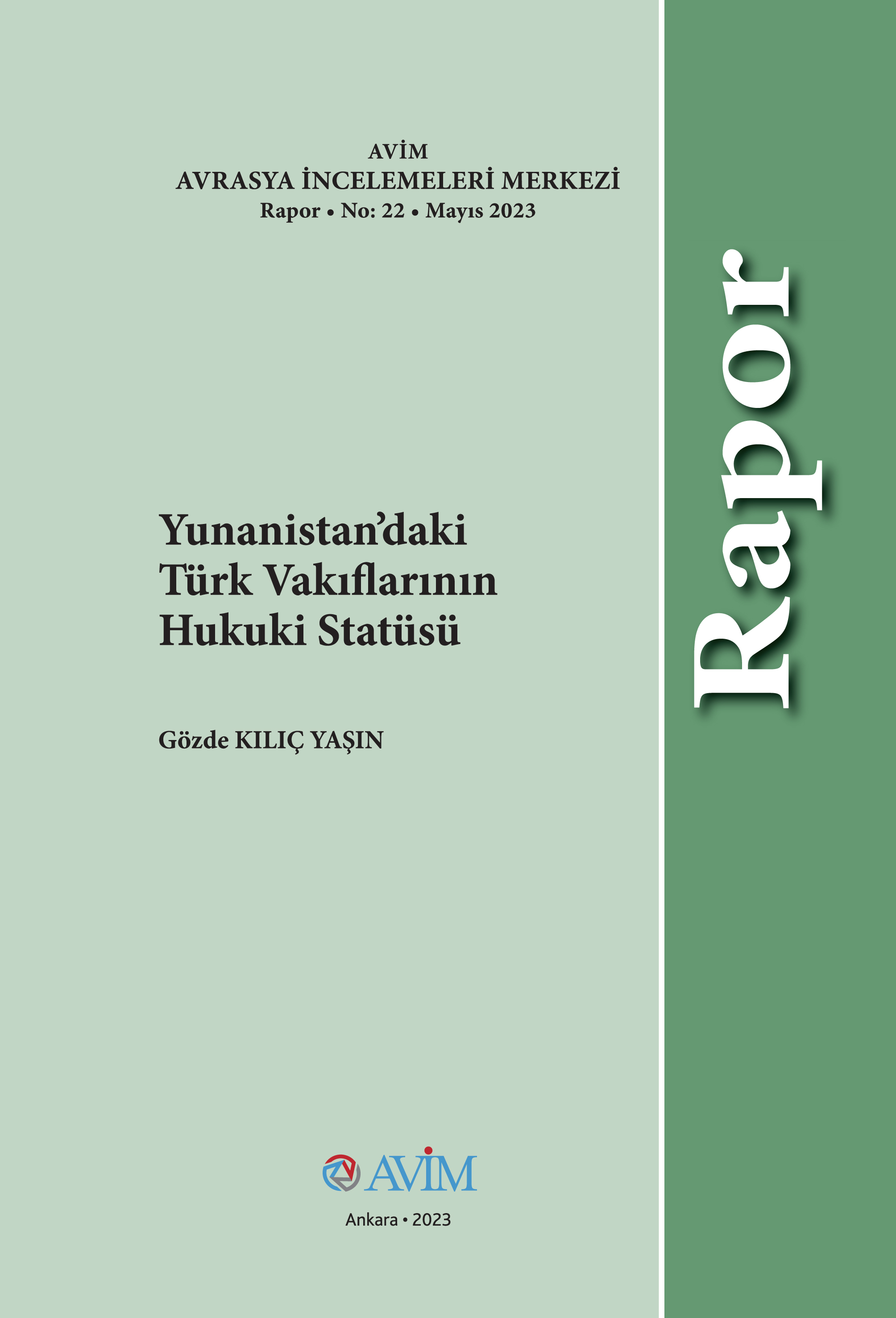Download PDF :



The Turkish foundations in Greece are essential institutions for the Turkish population in Greece to preserve their identity and thus maintain their existence. All the minorities remaining in Greece have been left with a legal system that guarantees their lives, their identity, their education, their freedom of worship, their future, and their economy. The law applicable to foundations, which are the public economic resources of the Turks, was shaped by the legal system established during the Ottoman period and its regulation in Islamic law. International treaties and bilateral agreements have also determined the procedure by which Greece will apply this law. Greece has also made the required arrangements in its domestic law and turned them into sustainable rules of law. After the start of the junta period in 1967, however, the rights of minorities in general and the law concerning the foundations were detached from their main foundations. As Greece returned to democracy, the re-establishment of law on minority issues was left in an insufficient state.
Gözde Kılıç Yaşın's Turkish-language report titled “Yunanistan’daki Türk Vakıflarının Hukuki Statüsü” (“Legal Status of Turkish Foundations in Greece”) examines the legal system regulating foundations and its practice in Greece. The report demonstrates the link between the preservation of autonomy in the administration of foundations and the overall rights of minorities. Accordingly, all the rights of the Turkish minority guaranteed by international agreements constitute an interconnected protection law. The benefits of leaving the administration of Turkish foundations to elected members of the Turkish minority should be considered together with the detriments of the failure to establish the position of Grand Mufti on the preservation of autonomy in the administration of the foundations.
In the light of the relevant legal cases, the report examines Greece’s practices regarding the properties of churches and the assets of foundations, which have similar legal status as they serve the same public purpose. Thus, this study attempts to define the Greek state’s position on these two institutions. We are of the opinion that this report submitted for your consideration is enlightening on the subject and will contribute to the related literature due to its findings on the interconnection of minority rights and the comparison with the law on church properties.
To access the report, please click: https://avim.org.tr/en/Rapor-KonferansKitaplari





























